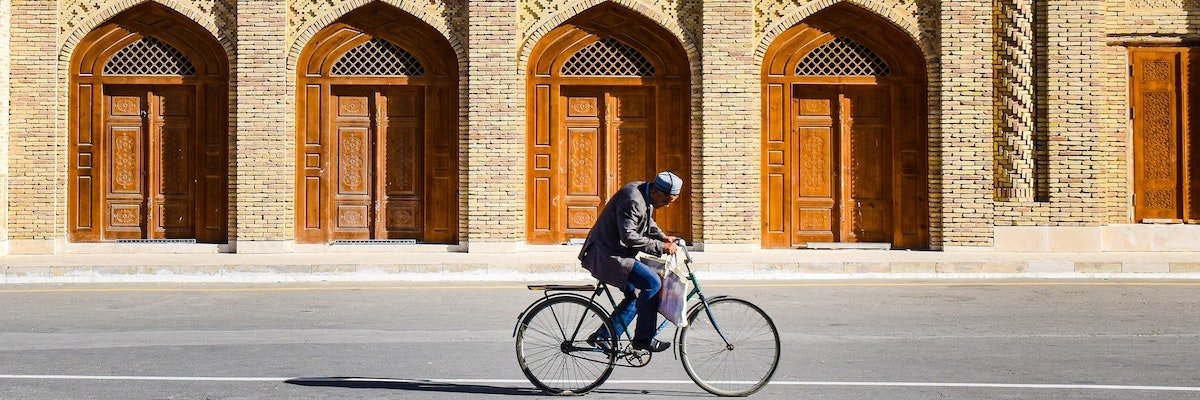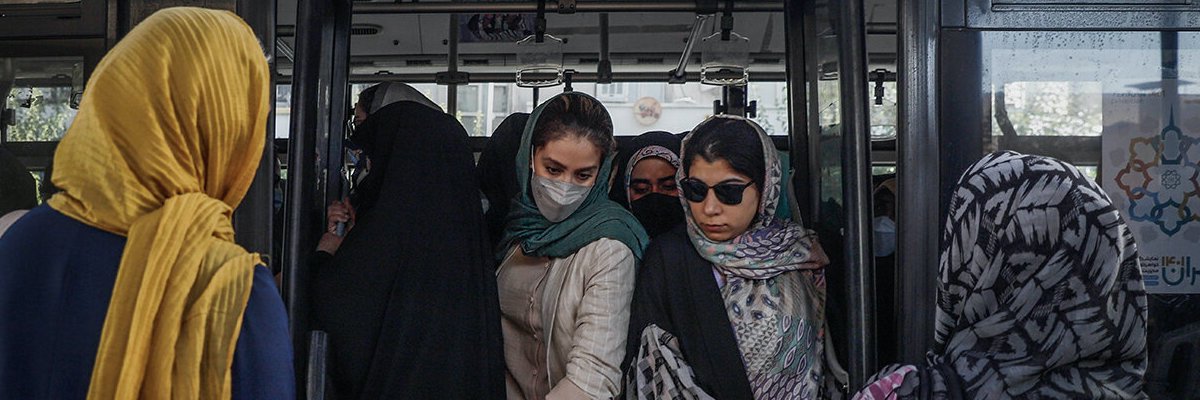Long-Awaited Uzbek-Kyrgyz Border Deal Sparks Unrest
In October, the final demarcation of the Uzbek-Kyrgyz border was expected to be successfully concluded after three decades of negotiations. The agreement was supposed to be a tremendous political victory for Kyrgyzstan, especially for President Sadyr Japarov. But instead of celebration, the agreement has spurred domestic unrest and intensified repression.
Most visibly, the unrest is due to the Kempir-Abad water reservoir in the Uzgen district. The local population in Uzgen believes that the government and president’s close ally Kamchybek Tashiev's negotiating team failed to fully address state borders, land ownership, and water management in the area and did not adequately explain the deal to the public. Concerns about ceding the important reservoir to another country and abandoning Kyrgyz land were frequently voiced, but the government downplayed concerns. Some members of a parliamentary committee responsible for the preliminary approval of the new border also complained about the secrecy of the agreement. The exact full wording of the deal was not published, which led to uncertainty about what they were actually voting for, and some parliamentarians refused to vote at all.
Japarov faced opposition to the announced border agreement both in media and in the streets. On October 22, a committee for the protection of Kempir-Abad reservoir was formed. Activists also organised a demonstration denouncing the deal and demanding transparent public discussions. However, Japarov labeled the protests as the product of the "evil intentions” of a few opponents.
To succeed, the regime has resorted to silencing the opposition voices until the deal is officially signed. On October 23, there was a mass detention of two dozen vocal opposition activists in Bishkek and elsewhere around the country. The Kyrgyz government also decided to take action against the local operations of Radio Free Europe and blocked the broadcaster’s website for two months over the alleged spreading of disinformation. Later, the National Security Committee—headed by Tashiev—ordered Demir Bank to close RFE’s local account.
The crisis over Kempir-Abad and the entire border demarcation process illustrates one of the core problems of the current Kyrgyz government: an authoritarian approach to sensitive domestic issues. On the agreement with Uzbekistan, Japarov and Tashiev decided to push the deal through the opposition using their political influence and power. There is no exact date of the official signature announced, and under the current circumstances, neither the official implementation nor peaceful acceptance of the deal by the Kyrgyz society is certain.
Since his ascendence to power after large public protests in October 2020, Japarov has relied on his image as a strong national leader. Issues regarding territory, national interests, mineral resources, and economic prosperity have formed the core aspects of his political agenda. In recent months, however, he has faced mounting challenges in every domain. Moreover, attempts by Kyrgyzstan to present a border agreement regarding Kempir-Abad failed last year. Experiencing the same failure again would be a huge blow to Japarov’s political career.
Aside from its border issues with Uzbekistan, Kyrgyzstan also lacks fully demarcated borders with Tajikistan. Various factors have delayed the demarcation process since the dissolution of the former Soviet Union. These include complicated physical geography, mixed ethnic populations, and domestic political stakes. Tensions between Kyrgyzstan and Tajikistan have been rising in the past few years and there is little hope that the situation will improve in the foreseeable future.
The government’s nationalist rhetoric has not helped. This rhetoric has been accompanied by armed clashes and unprecedented levels of violence earlier this year. Neither Bishkek nor Dushanbe are interested in launching a full-scale war against one another, and destabilisation of the wider region is against the interests of their neighbours too. Even so, neither side has shown the willingness to engage in negotiations. For the time being, leaders in Kyrgyzstan and Tajikistan are using to justify consolidation of power at home.
While condemnable, Japarov and Tashiev’s attempts to secure the regime's position by silencing critics are hardly surprising. But the scale of the repression is concerning. Despite domestic turmoil, Kyrgyzstan still enjoys a reputation as a country with a more vibrant civil society and greater democratic mechanisms than its neighbours in Central Asia. However, researchers, activists, and civil society members interviewed by the author in recent months unanimously pointed to a worsening outlook and cited the disappearance of previously understood “red lines” and the unpredictability of authorities’ punitive actions.
Tashiev’s participation at a meeting with Vladimir Putin in Moscow last week under the auspices of the Commonwealth of Independent States illustrates Kyrgyzstan's slide towards more oppression. During the meeting in Moscow, non-governmental organisations and international bodies were labeled as threats and destructive forces.
The unrest and regime instability in Kyrgyzstan may have a negative impact also on other international projects, including the China-Kyrgyzstan-Uzbek railway, which has been on the table for two decades with no traction until last month when it was finally put forward. If the unrest persists, the parties to the rail deal may run out of patience. Moreover, Uzbekistan may either delay the ratification of the border agreement or demand more favourable conditions at Bishkek’s expense.
But even if the border deal materialises and both Kyrgyzstan and Uzbekistan implement the agreement, issues on the ground will likely persist. The newly demarcated border requires effective border management, trust, and mutual endorsement by the locals on both sides. Without a proper arrangement, even a minor skirmish might escalate to a major border conflict. Moreover, the contested future of the Kempir-Abad water reservoir further adds to the complexity to an already fragile situation at the Kyrgyz-Uzbek border.
Photo: Press Service of the President of Uzbekistan




